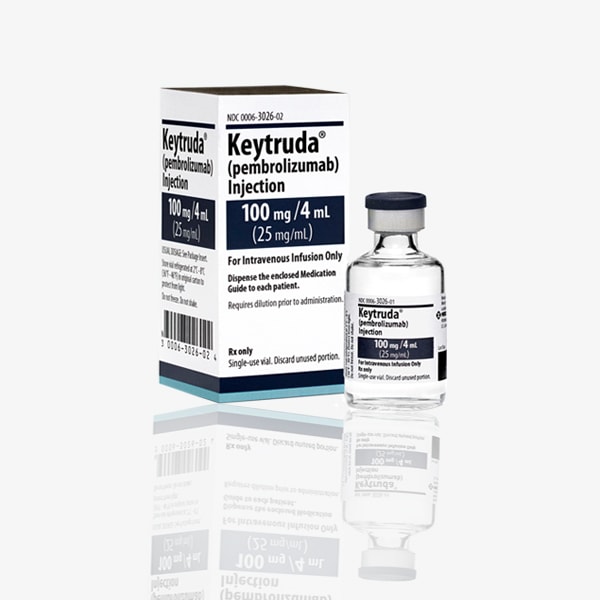
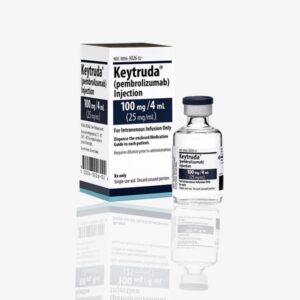
Buy Keytruda : Pembrolizumab 100 Mg/4 Ml Injection Online
$1,984.49
Brand Name : Keytruda
Composition : Pembrolizumab
Manufactured by : Merck Pharmaceuticals Ltd.
Strength : 100 mg
Form : Injection
Packing : Pack of 1 Vial
Prescription Required *

Buy Keytruda : Pembrolizumab 100 Mg/4 Ml Injection Online
$1,984.49
- Description
- Reviews (0)
Description
Description:
Keytruda, the brand name for Pembrolizumab, represents a groundbreaking advancement in cancer treatment. As a programmed death receptor-1 (PD-1) inhibitor, Keytruda is designed to harness the body’s immune system to combat cancer. Pembrolizumab has been a revolutionary addition to the field of immunotherapy, particularly in the management of various cancers.
Indication:
Keytruda is indicated for the treatment of a wide range of cancers, both as a monotherapy and in combination with other anticancer agents. Its primary indications include metastatic melanoma, non-small cell lung cancer (NSCLC), head and neck squamous cell carcinoma, classical Hodgkin lymphoma, urothelial carcinoma, microsatellite instability-high (MSI-H) or mismatch repair deficient (dMMR) solid tumors, and more.
Mechanism of Action:
Pembrolizumab, the active ingredient in Keytruda, is a monoclonal antibody that inhibits the PD-1 receptor on immune cells. PD-1 is a checkpoint protein that, when bound to its ligands, inhibits the activity of T cells in the immune system. By blocking the PD-1 pathway, Keytruda unleashes the body’s immune response against cancer cells, enabling T cells to recognize and attack tumors.
Administration:
Keytruda is administered as an intravenous (IV) infusion by a healthcare professional in a clinical setting, such as a hospital or infusion center. The infusion time may vary depending on the specific indication and the patient’s tolerance. The injection is typically given every three weeks, but the dosing schedule may be adjusted based on the specific cancer being treated and the overall treatment plan.
Dosage:
The dosage of Keytruda (Pembrolizumab 100 Mg/4 Ml Injection) is determined based on the patient’s weight and the specific cancer being treated. The recommended dose is administered over a specified duration, and adjustments may be made depending on the patient’s response and tolerability. It is crucial for healthcare providers to adhere to established protocols and guidelines for dosage administration.
Efficacy:
Keytruda has demonstrated remarkable efficacy across various cancers, leading to improved outcomes for many patients. Clinical trials and real-world data have shown its effectiveness in increasing overall survival, progression-free survival, and achieving durable responses in a subset of patients. Keytruda’s ability to enhance the body’s immune response has made it a cornerstone in the treatment of cancers that were previously considered challenging to manage.
Side Effects:
While Keytruda has shown significant benefits, it may also be associated with certain side effects. Common side effects include fatigue, nausea, diarrhea, and skin rash. Immune-related adverse events, such as pneumonitis, colitis, and thyroid dysfunction, can also occur. These side effects are generally manageable with appropriate medical intervention, and healthcare providers carefully monitor patients for any signs of adverse events.
Severe side effects, although uncommon, may include immune-mediated pneumonitis, hepatitis, or nephritis. Patients receiving Keytruda should be educated about potential side effects, and healthcare providers remain vigilant in their monitoring to promptly address any complications.
Precautions:
Keytruda is contraindicated in individuals with known hypersensitivity to Pembrolizumab or any of its components. Prior to initiating treatment, healthcare providers conduct a thorough assessment of the patient’s medical history, existing conditions, and potential risk factors.
Due to the immune-stimulating nature of Keytruda, caution is exercised in patients with autoimmune conditions. Close monitoring is essential during treatment to detect and manage immune-related adverse events promptly.
In conclusion, Keytruda (Pembrolizumab 100 Mg/4 Ml Injection) represents a paradigm shift in cancer therapy, offering new hope for patients across various malignancies. Its mechanism of action, broad indications, and demonstrated efficacy highlight its importance in the evolving landscape of cancer treatment. Ongoing research and clinical trials continue to explore the full potential of Keytruda and refine its application in different cancer types, fostering continuous advancements in the field of immunotherapy.
Be the first to review “Buy Keytruda : Pembrolizumab 100 Mg/4 Ml Injection Online” Cancel reply
Related Products
Buy Alphalan : Melphalan 2 Mg Tablets Online
Total Sales: 0
SKU: 527536
Buy Cantret : Altretamine 50 Mg Capsules Online
Total Sales: 0
SKU: 417978
Buy Dacotin : Oxaliplatin 100 Mg Injection Online
Total Sales: 0
SKU: 925185
Buy Erlonat : Erlotinib 100 Mg Tablets 30'S Online
Total Sales: 0
SKU: 456384
Buy Erlonat : Erlotinib 150 Mg Tablets 30'S Online
Total Sales: 0
SKU: 942762

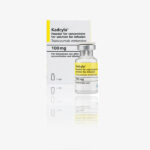

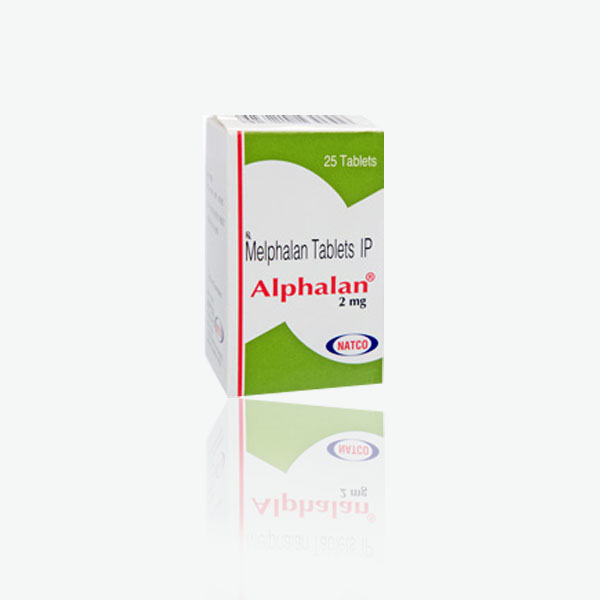

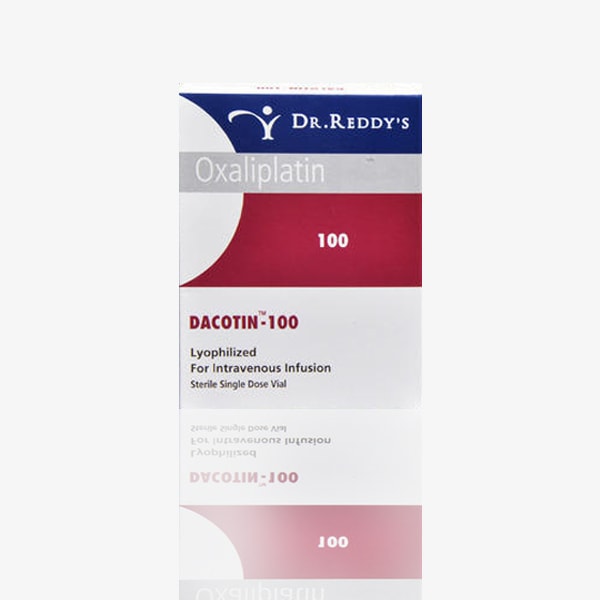


Reviews
There are no reviews yet.